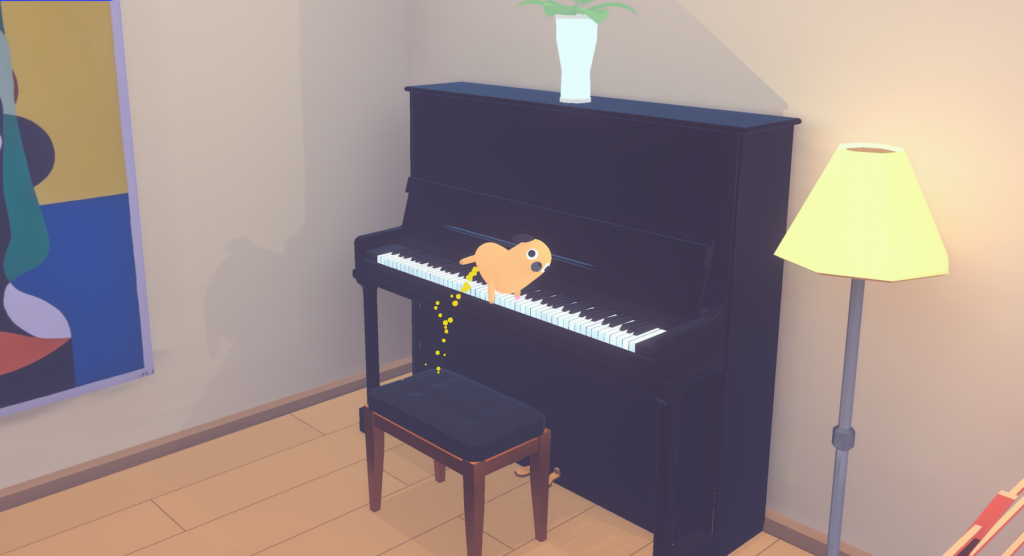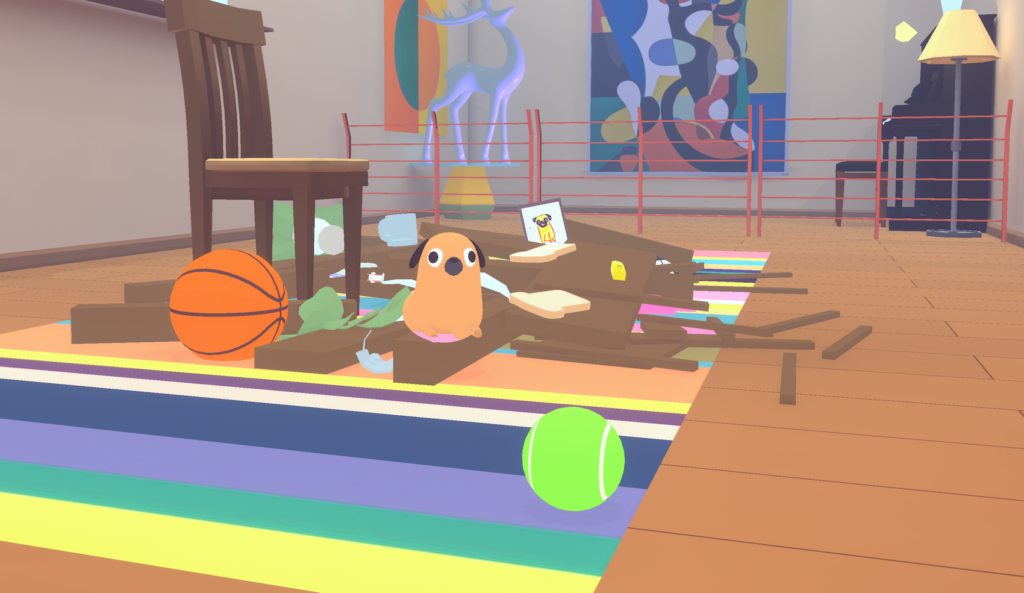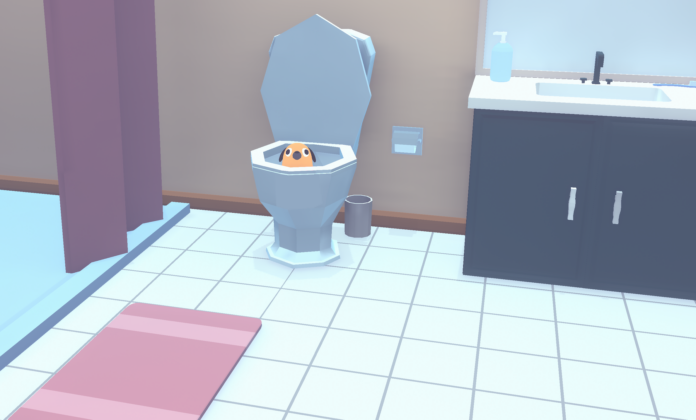Twenty years ago Rohan Nowell made a game for a high school project and it was then that the seed was planted. However, it took another 15 years for his debut game Swoopy Boi to come out. The mobile game about a Magpie that swoops down and attacks pedestrians was successful enough for Nowell to keep developing games. “I like variety in my work”, he says. “Looking back over the years and seeing how I have improved and how far I have come, is very motivating.”
His latest game Doggy Don’t Care started as a diversion for a serious project about grief he was working on. “It became overwhelming, so I wanted to make something silly, fun, and kind of stupid to mix things up.” Doggy Don’t Care is all those things in the best possible way. Although working completely alone, Nowell has a community of friends and colleagues he can turn to when needed.
Why did you become a solo developer?
“I made a game for my major high school project when I was 17 (in 2004) and I’ve had the desire to make games for a living ever since. I didn’t take the thought seriously until I watched Indie Game The Movie and even then it was another few years before I released my first game, Swoopy Boi. Making games is so much fun and it allows me to apply my creativity and skills across a broad range of areas in Doggy Don’t Care.”
What are the biggest advantages of working solo?
“I’m able to do what I want and at the pace that I want. It also forces me to learn a lot of skills instead of just one. I like variety in my work (art, coding, animation, marketing); it keeps things interesting and I also love seeing my own progress over the weeks, months and years.”
And the biggest pitfalls?
“Self-motivation can be very tough. I can go through long valleys of despair before I eventually have another breakthrough and finally make some progress quickly. It’s also difficult not having a team mate who I can turn to and ask for help.”

What’s your creative process?
“I take my dog for a walk and listen to podcasts about gamedev to get in the right space of mind. I play games (old and new) to get inspiration and bounce ideas off my wife and friends. I also released the demo on Steam early (after invite-only playtesting) so I can gather feedback from real players. I have a long list of improvements to make based on players sharing their thoughts and recording themselves playing.”
How do you stay motivated through (years of) development?
“I made some great friends at the SXSW Sydney game festival and other in-person events last year who have been really supportive and motivating. It’s nice to have a community to share ideas, struggles, and future plans. I’m also a very nostalgic person so I often look back over the years to see how I have improved and how far I have come – which can be very motivating.”
Will you ever work in a team or is it only solo for you?
“I hope to bring on some help for Doggy Don’t Care one day. I would love to get a composer and a professional illustrator to really make the game stand out.”

How did you get the idea for Doggy Don’t Care?
“I was making a game about grief codenamed ‘Solje’ but thinking about it all the time became too serious and overwhelming. So I wanted to make something silly, fun, and kind of stupid to mix things up. Untitled Goose Game helped me through covid lockdowns and Banjo Kazooie saw me through my teenage years so I decided to combine these two games into a fresh new idea which became Doggy Don’t Care.”
What’s the biggest lesson learned from this project?
“An idea doesn’t need to be perfect or even completely known before you start. Just start building and the ideas will come.”
The toll on your mental health can be quite high for solo developers. How do you deal with that?
“As I mentioned earlier, that is one of the reasons I am making a light-hearted game. Making the game and brainstorming ideas is fun and silly. I’m also trying hard to learn how to separate my game development and personal life. I don’t want to work on my game 7 days a week. I want to work smart, not hard.”

